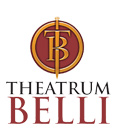Colloque et conférence
Au cours des cinq prochaines années, le principal défi dans le domaine intérieur sera le sentiment d'aliénation dont souffre une écrasante majorité de la population. Il vient d’un côté de la fracture entre gagnants et perdants de la globalisation et, de l’autre, des réactions face à ce qui est largement perçu comme une présence de plus en plus vindicative de l’islam sur le territoire national. Sur le plan européen, il existe, certes, une fenêtre d'opportunité sans précédent pour le projet d’une Europe protectrice, stratégique et autonome, défendu par la France depuis toujours, mais la seule solution pour y parvenir reste la mise en œuvre, enfin, de l’intégration à géométrie variable.

Pour lire le texte en entier, veuillez changer la langue en anglais, en haut de la page.
Pour écouter l'enregistrement (en anglais), veuillez cliquer ici.
* In 2012, FPRI established a Princeton Committee to bring experts and policymakers in foreign affairs together with individuals who seek a deeper understanding of the complex issues confronting us today. The format for these briefings, to be held in Princeton, is an intimate, salon-like setting in which participants may interact and exchange views with experts to a degree and depth not attainable in public forums. The Princeton Committee is directed by John R. Haines, trustee of the Foreign Policy Research Institute.
Tags:
france, ue





















